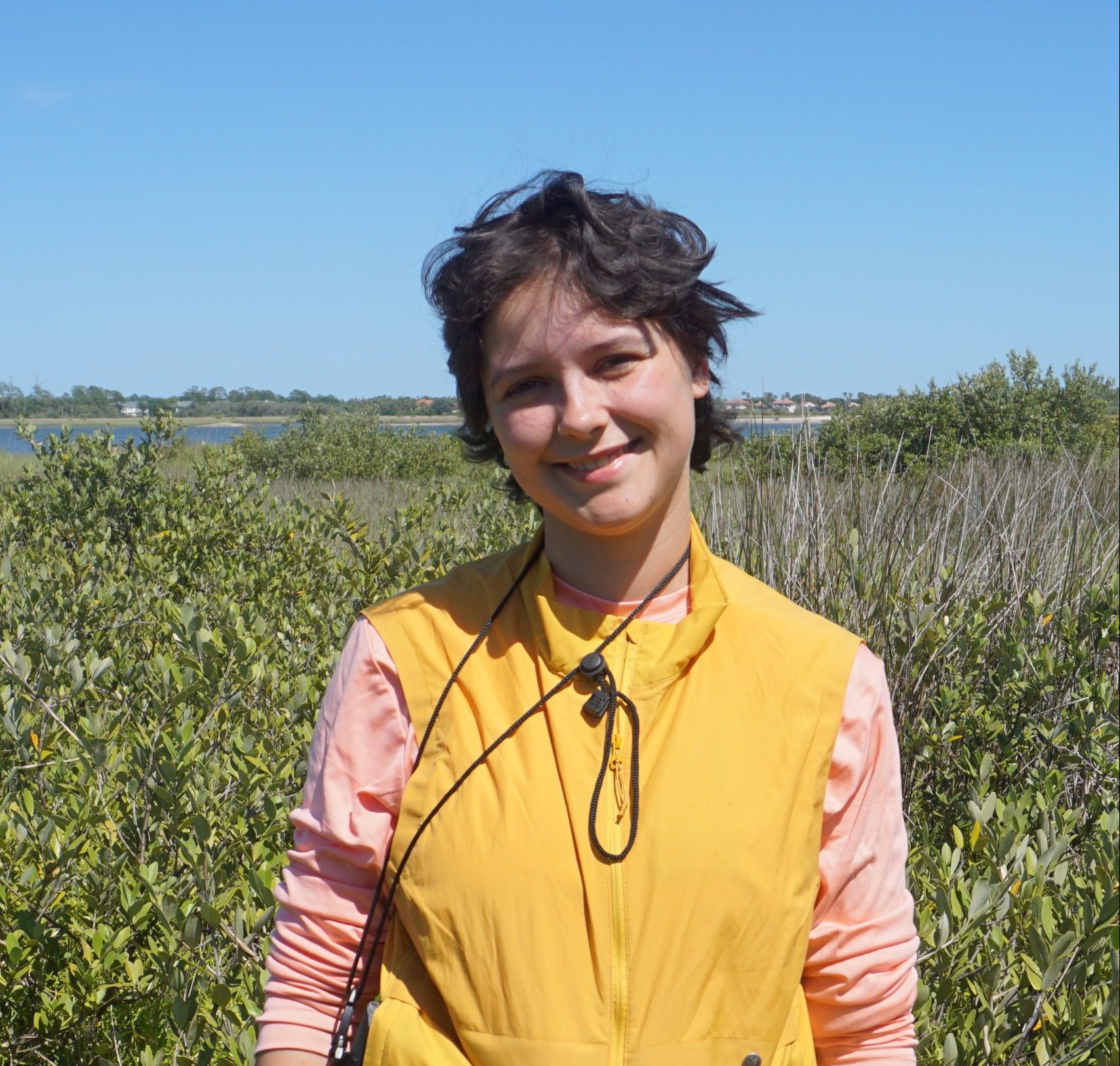Undergraduate student Alex van Pelt is inspired by biology at every scale, from cells to whole ecosystems, to find innovative solutions for a more circular economy. As a summer intern at the CCS, van Pelt works alongside researchers in the field and builds research skills as she gets set to close her chapter as an undergraduate student.
“The part I like the most about field work is the time I can observe the marsh, sit still and watch how all the organisms in the marsh live,” said van Pelt. “The other day it was high tide, and we went went back for the elevation data. I got to see the filtering job of the mussels and the water was so clear. That was amazing to see!”

Van Pelt is a third-year biology student at Utrecht University in the Netherlands. During her three-month stay, she will be helping UF graduate student Britney Hay from the Altieri lab, who studies how mangroves respond to elevational changes in salt marshes. She will also work on a research project with graduate student Adam Hymel, who is investigating how a combination of smooth cordgrass and ribbed mussels can accelerate the recovery of salt marshes that have undergone thin layer placement. Thin layer placement is the addition of sediment to a marsh’s surface and helps maintain a marsh’s elevation and withstand stressors like sea level rise.

Van Pelt will return home in July, to begin her master’s program in bio-inspired innovation at Utrecht University, where she will apply her new knowledge to two research projects she will undertake while completing her master’s degree.
“I’ll take the science I’ve been learning along with me back to the Netherlands—doing research and experiments and thinking about experimental designs and surveys,” said van Pelt. “My first field day was messy because we had to reinvent our method, but it’s great to learn practically in that way. It’s very common to think of a survey design and come out to the spot, but the site turns out to be different than what you thought.”
—
By Megan Sam
